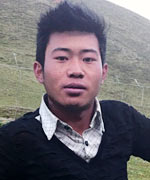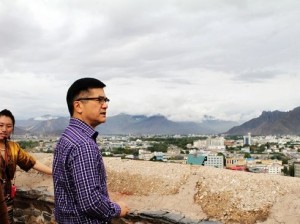 The news channel Voice Of America (VOA) released their documentary Fire in the Land of Snow on June 6 seeking to answer the question: “What is causing Tibetans to protest through one of the most terrifying and painful ways to die?”.
The news channel Voice Of America (VOA) released their documentary Fire in the Land of Snow on June 6 seeking to answer the question: “What is causing Tibetans to protest through one of the most terrifying and painful ways to die?”.
Looking at the history of the Chinese invasion of 1949 to present day policies, Fire in the Land of the Snow puts today’s fiery protests into context with past and current video footage and interviews. It paints a full picture of why Tibetans are setting themselves alight and concludes that the reason is desperation to change an era of occupation and harsh control.
The documentary highlights the ways in which China’s policies in the Tibetan Autonomous Region (TAR) and the surrounding ethnically Tibetan areas of Kham and Amdo have created severe restrictions on freedoms of religion, mobility and cultural preservation. Testimonies from Tibetans, scholars, and activists describe why the self-immolators feel driven to these extreme protests, and how policies restricting Tibetan liberties have been harsher than the norm in China.
Ngawang Norphel, 21, who self-immolated alongside his friend Tenzin Khedup in Kham on June 20, 2012 , was able to speak on camera about his goal:
“If we don’t have freedom, cultural traditions and language, it’s embarrassing for us. We absolutely must learn them. As a nationality, freedom, language, traditional religion are essential. My friend, without language, what is our nationality? Should we call ourselves Chinese, or Tibetan? …I have only one wish in my heart. I wish to raise the prestige of my people. My friend, other than that, I have no wish.”
Ngawang Norphel appears heavily burned in the video, his voice trembling, lying on a bed and unable to move.
Many clips display the heavy police presence and surveillance in Tibet’s holy capital, Lhasa, and viewers can see the police backlash against the monasteries since 2008’s uprising. Lobsang Jinpa describes the nun Palden Choetso’s self-immolation in 2012, in Tawu: “She told another nun that ‘the Chinese government is intensifying repression on us’”.
Fire in the Land of the Snow also shows how China’s policies have targeted Tibetans in schools and businesses. In the spring of 2011, new Chinese policies making Mandarin the compulsory language in Tibetan schools resulted in a wave of student protests. A relative of self-immolator Tsering Kyi, 19, who was a student in Gansu, describes her as being passionate about her heritage:
“She took a special interest in Tibetan language and literature… Some students were expelled and some were taken into detention for protesting. A principal and some teachers had been fired for resisting the policies… She said that life wasn’t worth living under these conditions.”
Tsering Kyi, who self immolated on March 3, 2012, was also reported to have told friends that “life was meaningless if we didn’t do something for Tibet”. Authorities imposed a severe lock-down on her school and town, Machu, in reaction to her protest.
Editor’s note:
Many of the self-immolators have left a message or statement. To read these, please follow the link below:
http://burningtibet.blogspot.in/2013/05/their-last-words.html






 Print
Print Email
Email